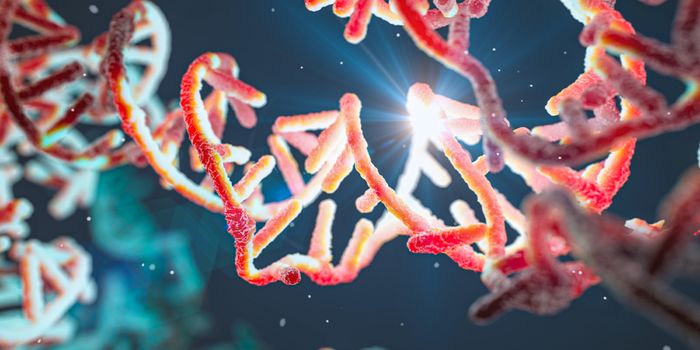Can Dietary Zinc Help Stop the Spread of Antibiotic Resistance?
Antibiotic resistance is a growing threat that is already thought to contribute to the deaths of millions of people every year. One reason for this serious problem is that bacterial cells can easily share genes with one another through a process called horizontal gene transfer. It often involves a piece of genetic material known as a plasmid, and many plasmids shared by bacteria are known to carry genes that confer resistance to a drug. But scientists have now determined that dietary zinc is able to significantly disrupt the transfer of some resistance plasmids. While more work will be necessary before these findings can be applied, it indicates that there may be some new options for discouraging the spread of antibiotic resistance. The findings have been reported in Applied and Environmental Microbiology.
“This is the first time where we’ve discovered that zinc inhibits the process of plasmid transfer, and at lower concentrations it has minimal effect on bacteria” said microbiologist and senior author on the study Melha Mellata, Ph.D., at Iowa State University. Scientists and clinicians now know how important it is to protect the bugs in the gut microbiome, so we don't want a treatment to have an overly powerful effect. “But if we just prevent the plasmid transfer, then we can reduce the spread of antimicrobial resistance.”
Mellata also noted when bacteria transfer genes, they often share the ability to resist more than one drug, so a person may have a drug resistant infection before they are even treated with any antibiotics. But if plasmid transfer can be halted, the spread of resistance genes might be reduced.
The investigators began to study the inhibition of plasmid transfer after another experiment showed that chickens treated with a Salmonella vaccine and probiotics had fewer plasmids in their gut microbiomes.
The team started to search for common supplements that might disrupt plasmid transfer, and tested them with an E. coli model in which one strain carried a multi-drug resistant plasmid while another strain did not have any plasmids. Zinc was found to significantly lower the transfer of plasmids, and higher doses were more effective.
The researchers wanted to know more about why this was happening, and assessed gene expression in the bacterial cells.
“We found some pretty unique mechanisms on how zinc might actually be inducing this inhibition when previous literature would state that we should expect more,” said researcher and study co-author Logan Ott.
Zinc was found to trigger excess expression of replication genes, to the point that the process was likely inhibited. Although zinc seemed to promote some aspects of conjugation, where bacterial cells come together to share genes, other proteins related to conjugation were also inhibited. Thus, gene transfer was disrupted.
Now the scientists are interested in testing these findings with other types of bacteria and plasmids, and in animal models. This could show whether dietary zinc could help reduce antibiotic resistance transfer in places like the gut microbiome.
The investigators also want to learn more about how bacterial cells interact and transfer genes.
But Mellata is hopeful that a supplement that is inexpensive and readily available could help us deal with an emerging threat. “Sometimes the solution can be just to use the old stuff we already have in our closet,” she said. “We just have to make the effort to test it.”
Sources: Eurekalert.org via American Society for Microbiology, Applied and Environmental Microbiology









